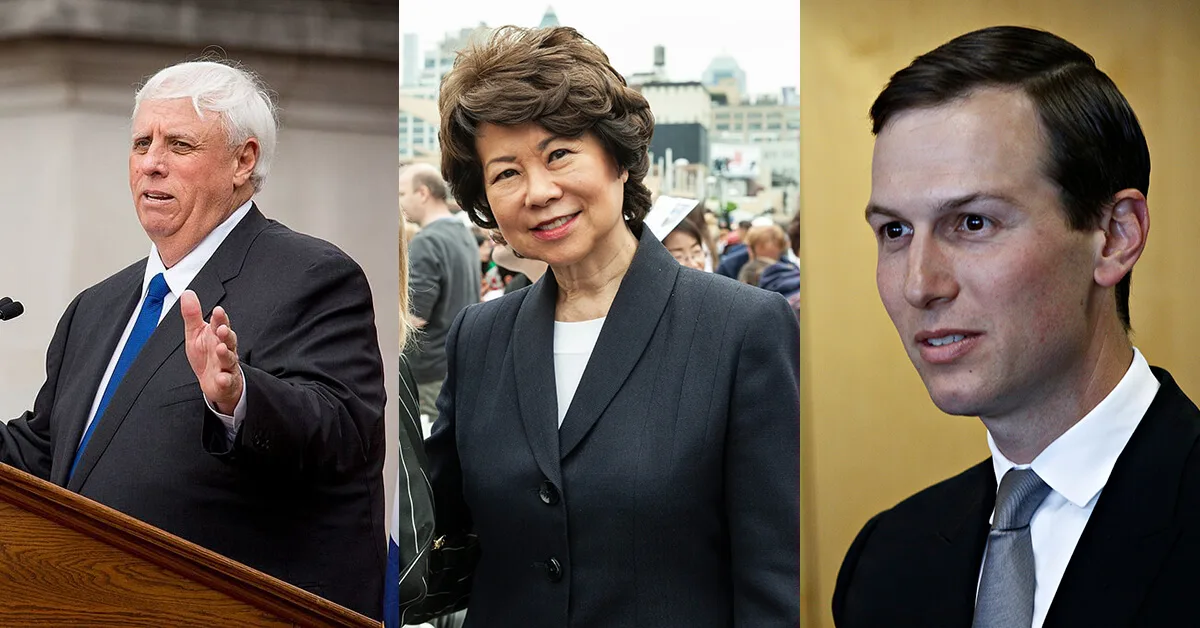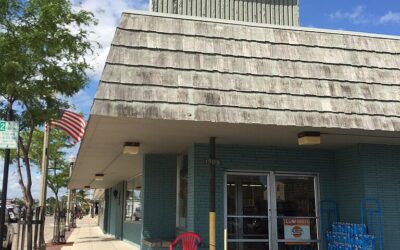
#image_title
PPP beneficiaries included billionaires, Trump administration officials, members of Congress, political donors, and wealthy financial institutions.
The federal government’s small business relief program was intended to help America’s small businesses weather the coronavirus pandemic, but data shows that aid from the program often flowed to the wealthy and connected, while Black and brown business owners were disproportionately left out of the program.
The Trump administration on Monday finally released details of loans of $150,000 or more approved under the Treasury Department’s Paycheck Protection Program. The data dump amounts to fewer than 15% of all borrowers, but reveals that beneficiaries of the program’s largest loans included billionaires, Trump administration officials, members of Congress, political donors, and wealthy financial institutions.
Recipients of the federal government’s aid include:
- Several companies tied to the president’s son-in-law and White House adviser, Jared Kushner, which could receive more than $6 million in total.
- Transportation Secretary Elaine Chao’s family business, Foremost Maritime, which received a loan of between $350,000 and $1 million. Chao is also married to Senate Majority Leader Mitch McConnell.
- Perdue Inc., a trucking company co-founded by Agriculture Secretary Sonny Perdue, which was approved for $150,000 to $350,000 in loans.
- Billionaire property developer and Republican fundraiser Joe Farrell, who was approved for a loan of up to $1 million.
- Dozens of top law firms, including the New York law firm of Kasowitz, Benson & Torres, which is led by President Trump’s attorney, Marc Kasowitz. The firm received between $5 million and $10 million in funds.
- The anti-government Ayn Rand Institute, which received between $350,000 and $1 million and The Americans for Tax Reform Foundation, the nonprofit arm of the anti-tax, pro-small lobbying group Americans for Tax Reform, which received up to $350,000.
- KTAK Corp., a Tulsa, Oklahoma-based fast food franchise operator owned by Rep. Kevin Hern (R-Okla), which received between $1 million and $2 million, while three car dealerships owned by Rep. Mike Kelly (R-Penn) received a total of between $450,000 and $1.05 million in loans. In total, at least nine lawmakers and three congressional caucuses are linked to organizations that received millions in loans, Politico reported.
- Kanye West’s $3 billion clothing and sneaker company Yeezy, which was approved for between $2 million and $5 million in loans.
- A string of elite private and charter schools in the Washington D.C. area, including Sidwell Friends, Lowell school, and the Edmund Burke School, all of which received at least $1 million in loans.
- Nearly 600 asset management companies and private equity firms, which were approved for loans, in addition to several Washington lobbyists.
All told, the Treasury Department has approved about $520 billion in loans to nearly 5 million mostly small businesses and nonprofits through the PPP.
While many of the nation’s elite received help, Black and brown business owners disproportionately found themselves left out of the program.
RELATED: Big Companies — Not Small Businesses — Made Bank Off of Trump’s Paycheck Protection Program
The Small Business Administration did not require lenders or borrowers to disclose information about race and ethnicity, and only 14% of the 661,218 loans included in Monday’s data provided that information about business owners. But even that sliver of data provides a glimpse into the inequities. Only 6.6% of the more than 90,000 loans that included racial or ethnic data went to Hispanic-owned businesses, and less than 2% went to Black-owned businesses, according to an analysis by the Center for Public Integrity. In contrast, more than 83% went to companies identified as white-owned businesses.
These numbers tell the same story as previous reports and studies. A May study by the Global Strategy Group found that only 12% of Black or Latinx-owned business owners who applied for aid received what they had asked for, while another 26% reported receiving only a fraction of what they requested.
RELATED: ‘We Didn’t Receive Anything’: How Michigan’s Black Businesses Got Left Out of PPP
Critics of the PPP argue that the program was structured to favor borrowers who had ongoing ties to banks, which business owners of color are less likely to have. Only 23% of Black-owned businesses and 32% of Latinx-owned businesses have been able to get credit from a bank over the past five years, compared to 46% of white-owned businesses, according to a report from the Center for Responsible Lending, a nonprofit advocacy group.
As business owners of color found themselves locked out of the PPP, many were forced to shut down their businesses for good. Between February and April, there was a 41% decline of Black small business owners and a 32% decline in Latinx-owned businesses, according to a study from the National Bureau of Economic Research (NBER). In comparison, the number of businesses owned by white people fell by only 17%, the study found.
The second round of PPP, approved in April, included measures to set aside tens of billions of dollars for certain types of banks to help direct funds toward business owners of color, low-income entrepreneurs, and businesses in underserved communities. That, however, has not sufficiently bridged the gap. Critics have said that the government took too long to make those funds available to business owners of color, many of whom could not remain in business long enough to apply for the second round of loans.
“Just the weeks that went by between those time periods could be the difference between the life and death of a business,” Henry McKoy, director of entrepreneurship at North Carolina Central University’s business school, told Politico.

Black and Brown Business Owners Need More Help—Now
In recent weeks, even as the deadline to apply for PPP has been extended, members of both political parties have faced pressure to direct more aid to Black and brown business owners. Sens. Steve Daines (R-Montana) and Cory Booker (D-NJ) have introduced an effort to make $50 billion in grants available to state and local governments for the smallest businesses and nonprofits. Booker has also introduced another effort alongside other Democratic senators to invest in businesses owned by communities of color and increase the budget of the Minority Business Development Agency in order to provide further fiscal aid during the pandemic.
“Minority-owned businesses are key drivers of growth in towns and communities across the country, but often face steep challenges when it comes to things like access to capital, mentorship, and training,” Booker said in a statement. “These existing disparities have only been compounded by the disproportionate impact of COVID-19 on minority communities and the ensuing economic downturn. Our bill addresses these challenges head-on by strengthening and expanding the Minority Business Development Agency so it can provide greater relief to minority-businesses as they weather this economic storm.”
Senate Small Business Committee Chair Marco Rubio, meanwhile, has brainstormed a plan to provide long-term loans to businesses that make most of their money in low-income communities.
The stakes of these efforts are growing greater, as the pandemic’s economic toll has disproportionately devastated Black and brown communities. The Black unemployment rate was 15.5% in June and the Latinx unemployment rate was 14.5%, compared to only 10.2% for white people.
RELATED: Trump Thinks the Economy Is Back on Track, But COVID-19 Is Widening the Racial Divide
Without further action, things could get even more dire. Black business owners are more likely than white business owners to hire Black employees, and if more Black-owned businesses are forced to shutter, that could exacerbate already-gaping disparities in employment and wealth.
The average white family has 10 times more wealth than the average Black family. While Black business owners struggled to obtain PPP loans, at least six businesses owned by West Virginia Gov. Jim Justice and his family received at least $11 million in aid.
Justice, who is white, was worth an estimated $1.5 billion in October 2019—87,464 times more than the average Black family.

Opinion: Together We Rise. Celebrating Women in Construction.
EmpowHER WI is celebrating Women in Construction Week by uplifting tradeswomen and advocating for ongoing change. Marking “Women in Construction...

Trump’s inaugural speech is at odds with the Wisconsin economy. Could he trash the ongoing recovery?
The president says he’ll bring down inflation, which is already coming down, and build manufacturing, which is already on the rise in Wisconsin. His...

Opinion: A legislator’s view of how a national financial merger can create a new range of local investment opportunities.
The deal between Capital One and Discover includes a massive package of financial resources for small businesses, nonprofits, affordable housing,...

Here’s where you can get discounts as a student in Wisconsin
Being a UW student means more than attending classes and taking exams – there are many exclusive discounts that being a student can get you in...




